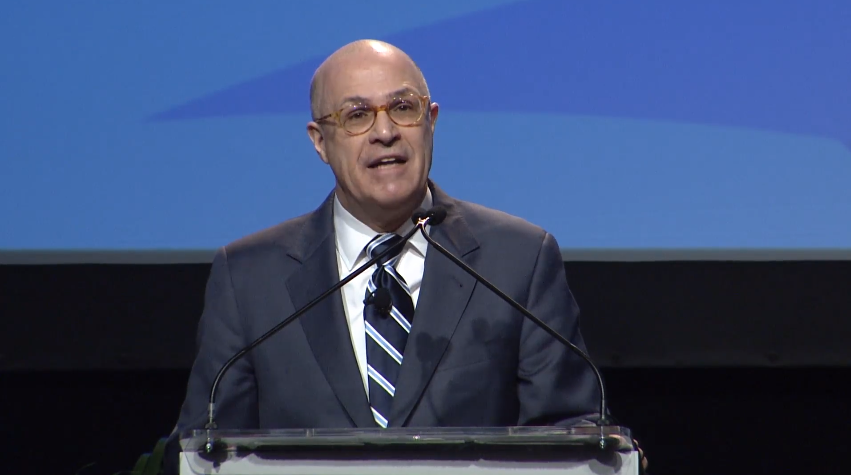CFTC Does Not Regulate Retail Crypto Markets: Chairman Chris Giancarlo

CFTC Chairman J. Christopher Giancarlo | Source: YouTube
The United States Commodity Futures Trading Commission (CFTC) Commissioner J. Christopher Giancarlo has stated that the agency’s primary remit is not to exercise regulatory jurisdiction over cryptocurrency trading markets and other cash markets, but to deal with fraud and compliance in large futures markets.
He made this comment while responding to a question from Rep. Stacey Plaskett (D-VI) during a hearing with the House Agricultural Committee held on Wednesday
The hearing, which was convened to examine the CFTC’s upcoming agenda, featured a number of questions from committee members on the subjects of cryptocurrency market regulation and blockchain technology adoption.
‘Four Years Behind’
Responding to another question, Giancarlo revealed that a consortium of the world’s six biggest banks had approached the CFTC in the course of building a prototype blockchain system for trading credit default swaps and making bank payments. They offered the CFTC an opportunity to be a part of the concept by designing a regulatory node for the commission to control, but, unfortunately, this was classified as a gift, which the CFTC Act prohibits.
Going further, he stated that the commission cannot build out its own blockchain framework because doing that would require funding that has to pass through an appropriation process. As a result of this and other factors he said, the commission is falling behind its contemporaries in terms of understanding blockchain technology.
In his words:
“We’re falling behind. The Bank of England has announced a new blockchain compliant payment settlement system. We’re 4 years behind. We need to test and understand it and know how to work it as a regulator before coming to Congress. …Using subpoenas to get information from blockchain finance industry I think is the wrong way to go about it. I think cooperation is the way forward.”
In response to a question from Rep. Plaskett regarding whether the CFTC needs Congress to grant it expanded jurisdiction to properly oversee the crypto market, Giancarlo stated that though the commission has fraud jurisdiction, it has no authority over things like cryptocurrency exchange platform standards for registering accounts and so on.
He explained:
“It is not the historical role of the CFTC to play this type of role in cash markets. It is not my place to advocate for expanded jurisdiction. There may come a time for the govt to step, but the question is when is the time. The total value of crypto market is probably less than one big publicly traded company so it’s not a big market. [I think] we should follow the regulation template of the early internet which was ‘first, do no harm.'”
CFTC Doesn’t Police Retail Market

Going further, the Commissioners also stated that the CFTC does not primarily regulate retail markets like bitcoin.
According to him, the Securities and Exchange Commission (SEC) has more experience in that area, and even though the CFTC regularly sends out advisories on crypto investment, it would be best to proceed “smartly but deliberately.” Over the next few years he said, the development of the market will make it clear exactly where jurisdiction will go.
Concluding, Giancarlo noted that for all the attention cryptos are getting, they still remain, at least in the larger scheme of things, a small market. He opined that the CFTC necessarily places more priority on markets with trillions of dollars in capitalization.
In order to bridge the four-year gap in blockchain knowledge, he said, the CFTC needs to make the jump from human-based analog data analysis to automated big data analysis, a process which takes time and money. Overall, in his opinion, the CFTC is doing a good job of delivering on its mandate.
“Some people out there in the Twitter space would make it seem like there is some great deal of confusion, but I think we have been very effective,” he concluded. “We are moving at a pace that is reasonable for an asset class that is developing rapidly but still very small. We are facing up to the challenge as these asset classes morph and change constantly, but I think we are on it.”
Update 7/26: A previous version of this article incorrectly attributed statements from Rep. Stacey Plaskett to Rep. Alma Adams, who was not present at the hearing.
Featured Image from YouTube